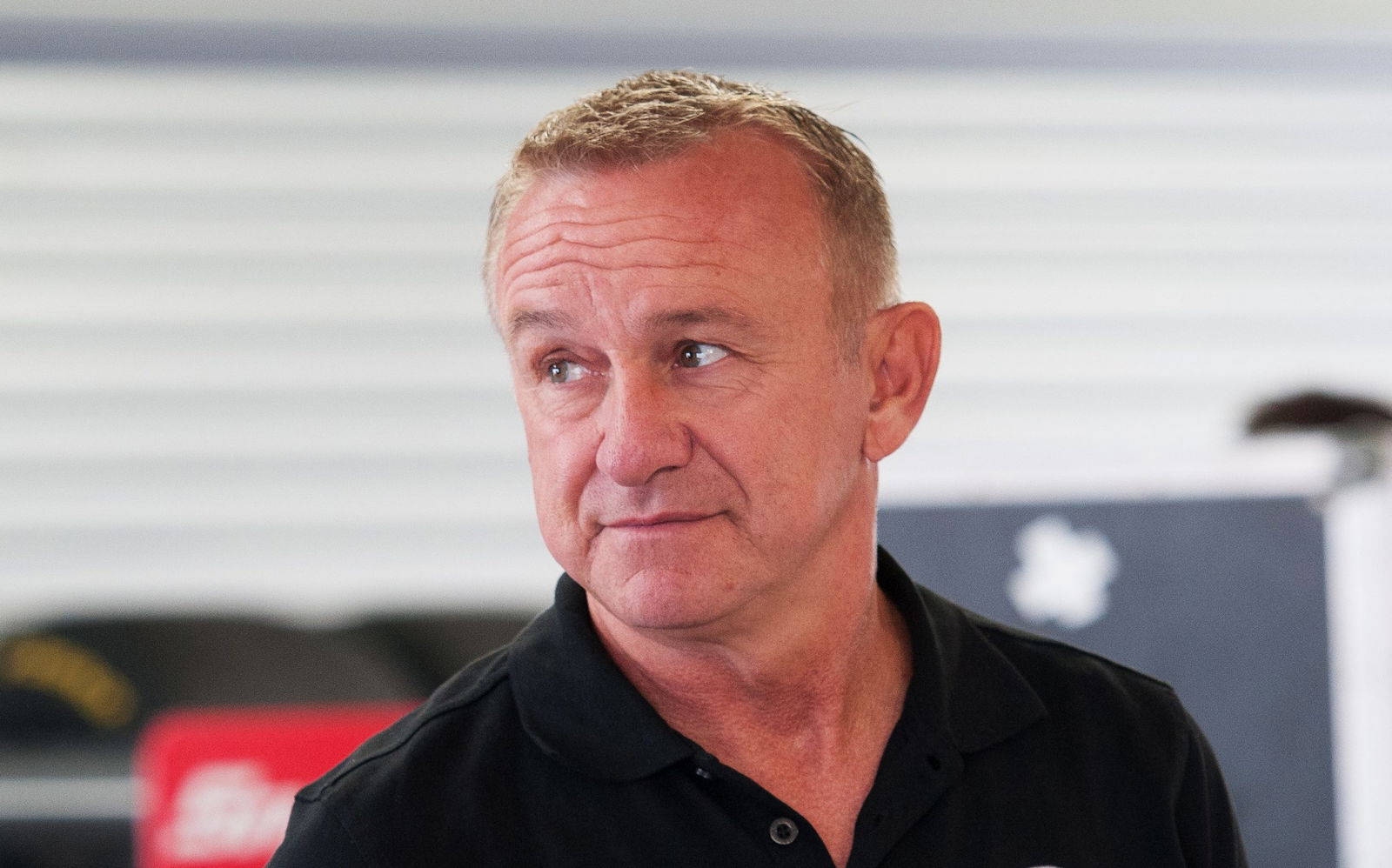

Russell Ingall has revealed the burden of carrying the ‘Enforcer’ nickname during his Supercars career, which he believes cost him several championships.
Having pursued a single-seater career that took him to Europe, Ingall faced fierce competition in Formula Ford, Formula Renault, and Formula 3.
There, he came up against the likes of Jan Magnussen, Pedro Lamy, and Marc Gene – all drivers who made it to the heights of Formula 1.
It was during his fledgling career that he developed the aggressive style in the cutthroat “kill or be killed” environment of the Formula 1 feeder series.
Ingall earned the nickname courtesy of a journalist who noted the driver’s aggressive driving style upon his return to Australia.
However, it wasn’t all well received by the public nor the drivers, as Ingall explained on the latest Rusty’s Garage podcast.
“I was quite happy to roll with that and I could see the commercial sense in it. Also, it wasn’t far from the truth, because of the atmosphere that I had just come from,” Ingall told Greg Rust on the Rusty’s Garage podcast by PodcastOne.
“I had just come from racing in some of the world’s toughest categories with some of the world’s toughest drivers in the harshest environments.
“I was sharp. I came back and it was like, ‘There’s only one spot, and that’s the fresh air out in front. I’m not going to be sucking up exhaust fumes from someone else, I’m going to be giving them’.
“That was a mentality I had come with. It rubbed a lot of people up because when I came back here there were still a lot of the owner-racers going on. So the Dick Johnsons, the people who owned the cars and owned the team and were still racing. You took it to heart a bit if they (the cars) got banged up a bit. They couldn’t deal with it initially, I felt.
“That’s the way I’ve always raced. I didn’t do it to rub people up the wrong way or whatever, that’s where I’ve come from. I’ve come from kill or be killed. A lot of people and the public couldn’t get their head around that.”
Ingall said the Enforcer nickname had its benefits, but at times drew animosity from parts of the racing scene.
The name polarised public opinion, but he believes that negative perception extended to officialdom and ultimately cost him a championship.
Ingall finished third in his debut Supercars season and was four times a runner-up in 1998, 1999, 2001, and 2004 before finally winning the title in 2005.
“A lot of people used to hate it too, so you got just as much hate mail as you did friendly,” said Ingall.
“But that’s what you want. No one wants warm and fuzzy all the time. The only way a sport works is when you’ve got like and dislike, you’ve got controversy. I seem to somehow fall in the middle of that all the time.
“But it also had its downsides, I believe. A lot of people in some certain areas and some positions that might listen to this might think not, or not agree with it, is that the trouble with having a tag like that is sometimes I could have been sitting in the grandstand and I would have got blamed for something that happened on the track.
“I think that sometimes rolled down into individuals that probably had a bit of influence in certain decisions that were being made on track.
“When I look back at some of the championships that I lost only by a few points, and I look back at some of the events that I got penalties for or whatever, I look back at that and go, ‘You know what? If it was in today’s environment, it would be a non-event. That penalty wouldn’t have been applied.’
“I think it was a leftover from the gentleman racing thing. People couldn’t get their head around really hard racing and some of the people making the decisions of that era couldn’t get their head around it as well. Some probably should have, and should have known better I believe.
“It’s only my opinion, but at the end of the day, I know it cost me a couple of championships of decisions that were made. So I paid a penalty for being the Enforcer.”
Despite the burden of the tagline, Ingall said he doesn’t regret getting behind the nickname.
“It got a good following out of it and people liked it,” he said.
“As it went on and I believe it transitioned into now, they’re starting to realise if you want controversy, if you want entertainment, it’s got to start on the track.
“You can’t watch a good rugby or league match without having tackling. If you took that tackling away it’d be pretty average. You’ve got to have it with this.
“I believe it’s changed now, people getting their head around it as time went on. Back then it was hard work and you got chastised a bit about it. But, I never regret it. I would never go back and change my style or how I did it.”




















Discussion about this post